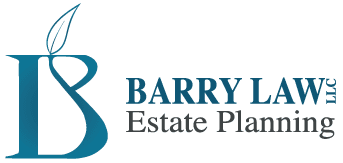Topping the list of estate planning misconceptions is the idea that an estate plan is only for the very old or the very wealthy. Estate planning is often confused with end-of-life planning when, in reality, this is only a sliver of what the task involves. Adults of all ages—and all walks of life—need an estate plan, and the plan needs to grow as you age. Below is an explanation of essential estate planning documents you should have in place as you reach life’s many milestones.
Reaching Age of Majority
As soon as you turn 18 (or 19 in some states), your parents lose the ability to make financial and medical decisions on your behalf. While this news may excite young adult readers, its impact should be the opposite. With no one legally appointed to protect your health and finances, you are at great risk should you suffer incapacitating injury and be unable to act on your own behalf. Medical and financial powers of attorney (POA) address this, which is why signing these documents needs to be as much a part of your 18th (or 19th) birthday as cake and candles.
Medical Power of Attorney
A medical POA designates a trusted loved one to make medical decisions on your behalf should you suffer incapacitating injury.
Financial Power of Attorney
Financial POA designates a trusted loved one or advisor to make financial or legal decisions on your behalf should you suffer incapacitating injury, or otherwise be unable to personally intervene in your affairs.
Buying a Home, Getting Married, and Having Kids
Young adulthood brings a cascade of big life changes. Somewhere between your twenties, thirties, or even forties, you are likely to buy a home, choose a partner, and start a family. All of these decisions forever change your life, and this must be reflected in your estate planning. In addition to medical and financial POA, you now need a Will and, perhaps, a trust.
Last Will and Testament
Your Will specifies how your assets will be distributed, and who will manage this task when you die. Further, this document provides space to make guardianship designations for minor children, and lay out a range of other final wishes.
Trust
A trust is a versatile legal tool that allows you to transfer assets to beneficiaries while retaining control over how they are managed. People use trusts for all kinds of purposes, but in your early adult life likely the most important application will be setting aside financial support for your children and loved ones should anything ever happen to you.
Divorce, New Marriage, and other Mid-Life Concerns
Life is full of stumbling blocks, and if you live long enough you are sure to bump into a few. As your constellation of affections changes, and people enter and exit your life, you need to ensure your POAs, Will, and other estate planning documents are kept up to date. Furthermore, though it may seem soon, now is the time to begin thinking about long-term care planning. An experienced estate lawyer is your best resource for more information about all that this entails.
Retirement and Beyond
As you reach your golden years, it becomes increasingly important that your estate planning documents are up to date, and that you have a robust long-term care plan in place. This may mean shuffling around assets, investing in an irrevocable trust, or speaking with an estate lawyer about other ways to ensure you qualify for the care you may one day (soon) need.
To learn more about how an estate plan protects you and your loved ones at all stages of your life or to begin your estate plan today, do not hesitate to Barry Law, LLC either by calling (913) 336-1600 or using the contact form below.
***
[ninja_form id=3]

